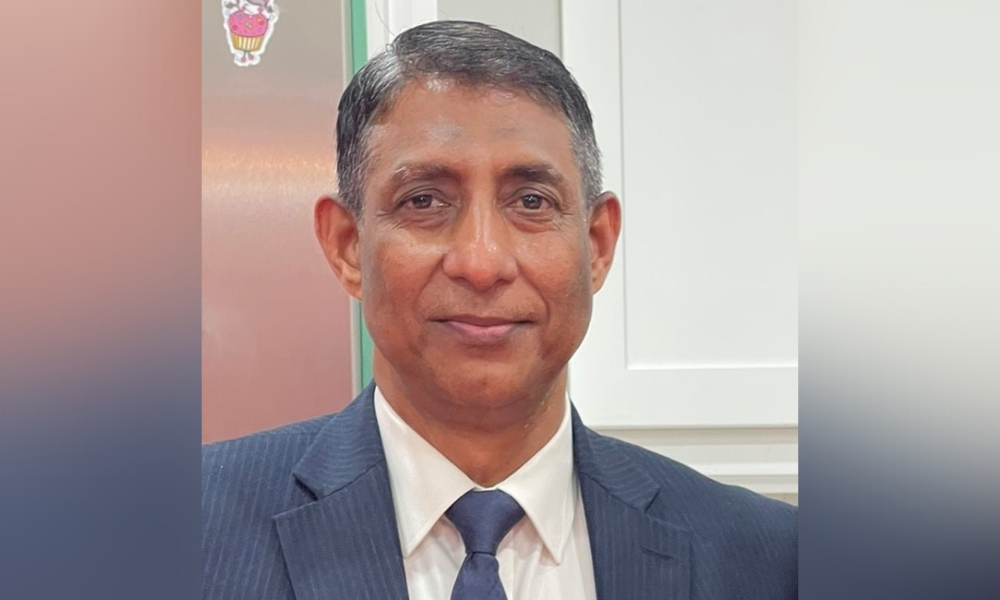Frequency – not content – of communications relevant in genuineness-of-marriage evaluation: lawyer

A Federal Court decision granting judicial review of a rejected permanent-residence sponsorship demonstrates how in high-stakes matters where a negative result is “catastrophic” for applicants, immigration officials must exhibit caution and provide a detailed justification, says Nasir Maqsood, a lawyer who focuses on immigration appeals.
In Elias v. Canada (Citizenship and Immigration), Federal Court Justice Sébastien Grammond allowed an application for judicial review brought by Maryam Daher Elias, a Canadian citizen. She had tried to sponsor her husband for permanent residence, but the Immigration Appeal Division (IAD) rejected her request.
The IAD claimed she had failed to show their marriage was genuine and not a ploy to gain status or privilege under the Immigration and Refugee Protection Act (IRPA). Section 4(1) of the IRPA states that a foreign national is not a spouse if the marriage “was entered into primarily for the purpose of acquiring any status or privilege under the Act” or “is not genuine.”
Elias, 58, has been a Canadian citizen since 1996 and was born in Lebanon. In 2009, she divorced her husband Salah Talini. Two years later, while visiting her country of birth, Elias met her current husband, whom the decision refers to as Mr. Baiade, who is her first cousin and 20 years her junior. They were married in Turkey in December 2011.
Elias made a sponsorship application in 2012 but was rejected. Her divorce had been executed according to Islamic law, which has no effect in Canada and rendered her new marriage invalid.
In 2013, Elias got a civil divorce and made another application for Baiade. This application was also denied. Her new divorce could not retroactively validate her and Baiade’s marriage. So, in 2018, they divorced and remarried the following year. She made a third application but was refused, this time because the visa officer was not satisfied the marriage was genuine and was not being attempted for the sake of Baiade’s immigration.
Elias then appealed to the IAD. The IAD counted in her favour the couple’s knowledge of one another, their persistence in attempting to obtain sponsorship and Elias’ frequent visits to Lebanon. But the IAD also found there was no evidence that they had lived together, the evidence they frequently communicated was insufficient, and when asked questions about their compatibility, their answers lacked specificity. But most damaging was that Baiade had applied for a visitor visa in 2011 to visit Elias and Talini.
According to the Federal Court, the IAD had “relied heavily” on Baiade’s statement in his 2011 visa application that he wanted to “visit my cousin and her family.” This statement contradicts Elias’ claim that at this time, she and Talini were already divorced, and she was romantically involved with Baiade. For the IAD, Baiade’s inability to explain this inconsistency raised questions about his motives and killed his chances of success in the appeal.
But the court found the IAD’s findings unreasonable for lack of justification. It said the IAD’s reasons were unclear whether Baiade’s statement had caused the adverse determination on his credibility. The court was also unsure whether the IAD had considered the “potential innocent explanations” to Baiade’s inconsistency.
In Hilo v Canada (Minister of Employment and Immigration) (1991), the Federal Court of Appeal said credibility findings require “clear and unmistakable terms.” The IAD had particular responsibility for justification, given it had described Elias’ as a “borderline” case, and also when Vavilov’s “insistence on justification is taken into account,” said the court.
A need for justification was even more imperative provided the stakes of the matter. The court cited Gill v Canada (Citizenship and Immigration), 2010 FC 122, which had said the IAD must “proceed with great care” when deciding on a marriage’s genuineness because “the consequences of a mistake will be catastrophic to the family.” In Vavilov, the Supreme Court of Canada noted that high stakes must also be reflected in the reasons.
With the high stakes of a couple’s desire to reunite after ten years apart, the IAD’s “short reasons” did not cut it, said the court.
When immigration officials decide on the genuineness of a marriage, two key factors they consider are whether the couple has lived together and whether they communicate frequently, says Maqsood.
The IAD had taken issue with the evidence demonstrating Elias and Baiade had lived together when she visited Lebanon and that they had remained in frequent contact. There was no receipt or record of any rental or lease agreement for their shared apartment. And while there were around 50 pages of screenshots on the record depicting Elias’ and Baiade’s contact via WhatsApp, the IAD dismissed this evidence because it was in untranslated Arabic.
Maqsood says his client’s cultural background was relevant regarding the Arabic communications. While in Canadian culture, there may be more comfort in sharing the intimate details of correspondences between a husband and wife, this is not always the case in the Middle East. Ultimately, the substance of the messages did not matter, he says.
“The Federal Court noted that what is relevant is the frequency of communication, not its content,” says Maqsood.
A similar dynamic was revealed in the IAD’s position on the lack of record showing the couple had rented an apartment in Lebanon. The Lebanese economy is different from Canada’s, where every transaction is documented, and Baiade had testified that they had paid cash for the apartment, he says. “This is, again, applying Canadian norms on Lebanon.”
Maqsood is a Mississauga-based lawyer who, in addition to immigration appeals, practises personal injury and wills and estates law.










